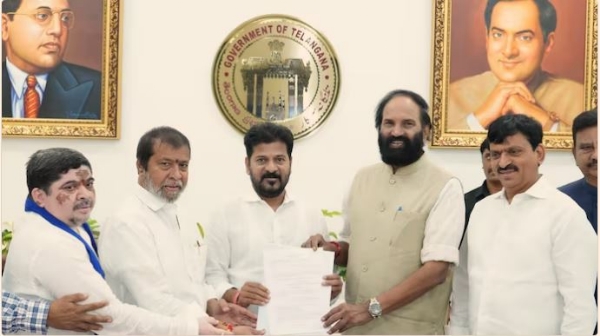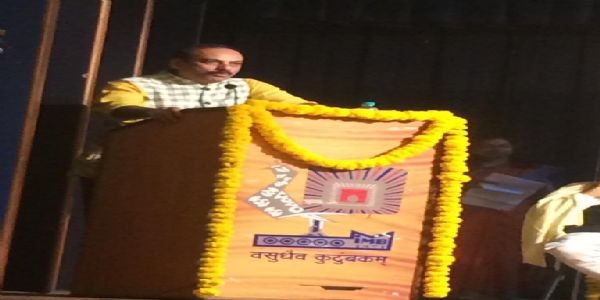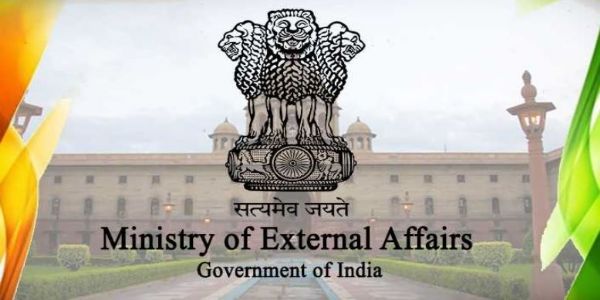
New Delhi/Hyderabad, 14 April (H.S.): Telangana government, on Monday, issued an order for the implementation of the subcategorization of Scheduled Castes (SC) after receiving approval from the Supreme Court. This move follows the passage of the Telangana Scheduled Castes (Rationalization of Reservations) Act 2025 by the Telangana Assembly on March 18 and the subsequent assent of the Governor on April 8. The timing of this Government Order coincides with the birth anniversary of B.R. Ambedkar, the architect of the Indian Constitution.
Telangana's Health Minister, Damodar Raja Narasimha, emphasized that the categorization aims to address social backwardness and provide preferential treatment to SC communities that have been marginalized for decades. He clarified that this categorization is not a final solution but rather a tool for improving the conditions of disadvantaged SC communities. He highlighted the need for financial assistance, education, skill development, housing, and industrial policies favoring SCs in order to eradicate their socio-economic backwardness. The categorization directly affects approximately 178,914 individuals from 24 SC communities, representing only 3.43% of the total SC population in Telangana.
The categorization is structured into three groups based on socio-economic and educational backwardness:
First Group: Comprising 15 backward SC communities with a total of 171,625 individuals, allocated 1% reservation.
Second Group: Encompassing 18 communities with about 34 lakh individuals, allocated 9% reservation.
Third Group: Consisting of 26 communities with a total population of 17 lakh, allocated 5% reservation.
Minister Narasimha referred to the Supreme Court’s guidance in favoring the most backward sections during his discussion of the Bill. He noted that the initial proposal of 0.5% reservation for the first group based on population was bolstered by an additional 0.5% due to their severe backwardness. He also cited findings from several committees, including the Lokur Committee (1965), Justice Ramachandra Raju Commission (1998), and Usha Mehra Commission, as well as a Supreme Court ruling dated August 1, 2024, which legitimized the need for such categorization in Telangana.
The Telangana government swiftly acted by enacting legislation for SC categorization within six months of the Supreme Court judgment. This included creating a cabinet sub-committee and appointing retired Justice Shameem Akhter to lead a commission focused on the matter.
The SC Categorization Act seeks to rationalize the existing 15% reservation for Scheduled Castes by organizing 59 sub-castes into three groups based on their varying levels of backwardness, thereby promoting a framework aimed at upliftment and equal opportunities for the most disadvantaged communities. Group 1, with its 15 communities, represents 3.288% of the SC population, receiving a 1% reservation.
Group 2 comprises 18 moderately benefited communities, which constitute 62.74 percent of the Scheduled Caste (SC) population, and has been allotted a 9 percent reservation. Meanwhile, Group 3 includes 26 relatively better-off communities, representing 33.963 percent of the SC population, and is granted a 5 percent reservation. The Shamim Akhtar Commission was established in October 2024, following a pivotal Supreme Court ruling on August 1, to investigate socio-economic indicators among different SC sub-castes.
The Commission received over 8,600 representations, conducting an exhaustive analysis encompassing population distribution, literacy rates, higher education admissions, employment patterns, financial support, and political engagement. After an initial report was prepared, the commission's tenure was extended by a month to accommodate further discussions and concerns raised by various communities, ensuring all opinions were acknowledged prior to the report's finalization.
Amidst the political dialogue surrounding the reclassification of castes, Narasimha highlighted the Budiga Janga caste, which was categorized in the first group owing to low literacy rates and marginalization, despite having a population of 111,000. He argued that a binary classification would lead to imbalance, while the inclusion of four groups was deemed excessive according to the commission’s findings.
CPI MLA Kunamneni Sambasiva Reddy expressed apprehension about the Rella community's new classification, which shifted from Category A to the third group despite the community's role in scavenging and sanitation services. He urged the government to revisit this classification.
AIMIM MLA Majid Hussain proposed increasing SC reservations to 18 percent and advocated for the creation of four categories instead of the existing three. In a final meeting led by Telangana’s civil supplies minister N Uttam Kumar Reddy on April 1, the implementation guidelines stemming from the Justice Shamim Akhtar Commission’s recommendations were discussed, and approval was given for a government order (GO).
The cabinet sub-committee ultimately rejected the idea of introducing a creamy layer within the SC category. Minister Uttam Kumar Reddy reaffirmed the government's dedication to equitable benefit distribution, ensuring no subgroup would be excluded based on economic criteria. He emphasized that existing benefits would remain intact while the new categorization aims to improve fairness for all SC groups.
Additionally, he noted that the current 15 percent reservation for SCs is rooted in 2011 Census data, while the SC population in Telangana is now approximately 17.5 percent. Reddy mentioned that considerations for an increase in total reservation would be evaluated once data from the 2026 Census is available.
---------------
Hindusthan Samachar / Indrani Sarkar








